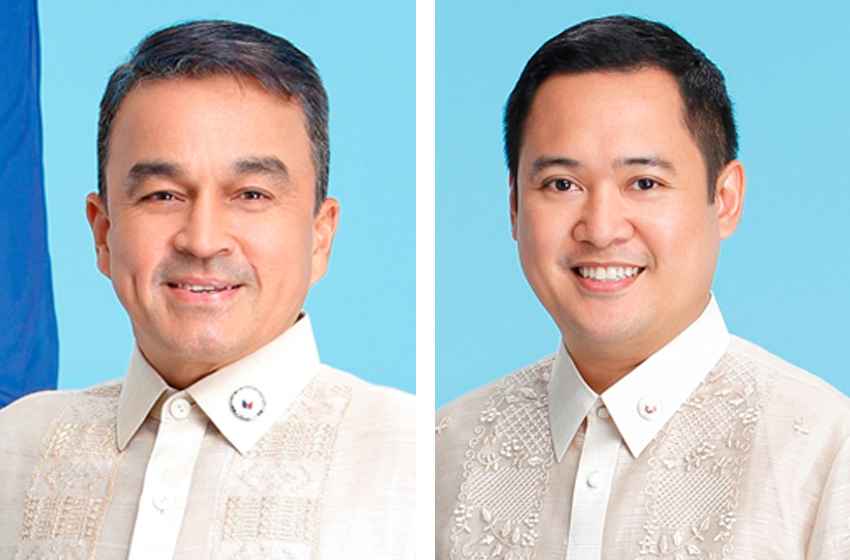Several Filipino lawmakers pushed for the immediate repeal of a controversial ruled issued by the Civil Service Commission and the Department of Health (DOH) in 2010 following the receipt of grant money from a U.S. lobby group that is now being used as the basis to prohibit tobacco companies from purchasing vaccines for their employees and dependents.
While the government eventually removed the “discriminatory” provision in the draft regulations of the Department of Health (DOH) this year that ban tobacco and formula milk industries from procuring and donating COVID-19 vaccines following the public outcry, the original provision and legal basis of such provisions contained in Joint Memorandum Circular 2010-01 issued by the CSC and the DOH in 2010 should be scrapped altogether for being “unlawful” and “unconstitutional”, according to lawmakers.
JMC 2010-01, which prohibits government officials and employees from interacting with the tobacco industry, was issued in the same year the DOH and the CSC received massive grants from the anti-tobacco NGO Bloomberg Initiative. It was the basis of the DOH’s initial draft regulation barring tobacco companies from obtaining and donating Covid-19 vaccines.
If the initial DOH proposal had been adopted, several food, beverage and tobacco companies would have been prevented from procuring vaccines for their employees.
Rep. Ace Barbers and Rep. Jericho Nograles raised the alarm on JMC 2010-1 issued by then CSC Chair Francisco Duque which singles out the tobacco industry and creates special rules for government employees detailing how they should interact with representatives from the tobacco industry, including small tobacco-growing farmers.
“This JMC is an unlawful and unconstitutional memorandum that has remained unchecked until today,” Rep. Nograles said.
Rep. Nograles said while he is thankful that the DOH finally agreed to withdraw its proposal to restrict businesses involved in tobacco, formula milk and “other industries in conflict with the interest of public health” from procuring Covid-19 vaccines, the motive behind the proposal to exclude them is very concerning.
“The provision that wanted to exclude industries that are considered “in conflict with public health” from the national vaccination program highlights the need for us to be more vigilant,” Rep. Barbers said.
“I understand that the claimed legal basis for this now-deleted provision is the Joint Memorandum Circular 2010-01 issued by the DoH and the CSC. Nothing in that circular can be interpreted to justify the exclusion of several industries in our fight against COVID-19,” he said.
Rep. Barbers said he recommends the scrapping of the JMC if “that is how the circular is being used.
In a public hearing last week, Rep. Nograles revealed that JMC 2010-01 was issued by the CSC and the DOH in 2010, the same year the DOH received a huge financial grant from the anti-tobacco NGO Bloomberg Initiative.
Health Secretary Francisco Duque III was the chairman of the CSC when the JMC was issued.
“It has been revealed that foreign money has been influencing policy making in the DOH for quite some time. In fact, the Congressional hearing revealed at least $2 million in lobby money that has influenced policy coming from Bloomberg alone,” Rep. Nograles said.
Rep. Nograles said the proposed restriction was obviously pushed on the basis of Duque’s deal with Bloomberg and it shows that DOH policies “have already been compromised by foreign money.”
This, however, is not unique to the tobacco industry alone. Senate Minority Leader Franklin Drilon, in a radio interview, said organizations actively lobby against the alcohol, sugar and milk industry and provide millions to government regulators in exchange for the implementation of their agenda.
Senator Drilon said that while he hates sin products, zeroing on certain industries is discriminatory and is not right.
Deputy Speaker Wes Gatchalian said the DOH’s draft order was an overreach and beyond the authority of the department aside from being unconstitutional.
He recalled a similar situation during the Taal Volcano eruption in 2020 when donations of formula milk and even bottled water from companies who were willing to donate to the Taal evacuees were likewise prohibited.
Gatchalian raised the same concern then, when he learned that the Department of Social Welfare and Development was unable to distribute milk formula because of restrictions imposed in the law.
“There were hundreds of infants in evacuation centers then who needed milk and other substitute formula but were denied access to these donations. Clearly, the scenario is the same as the prohibition for the COVID-19 vaccines to be distributed to our countrymen merely on the basis of prohibited interactions between the industry and the bureaucracy,” he said.
“We should not be misdirected by these interest-groups that instead of helping our country in our time of need, work to set us against each other,” Rep. Barbers said.



















